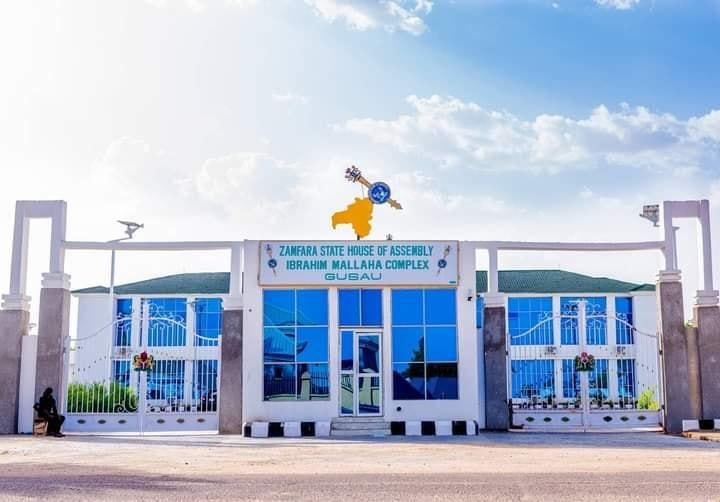Political Upheaval in Zamfara: A Deep Dive into the Parallel House of Assembly Crisis
Zamfara State, located in northwestern Nigeria, has become embroiled in a renewed political crisis following the establishment of a parallel House of Assembly by a faction of lawmakers. This splinter group, comprised of 10 members previously suspended by the current Assembly leadership, convened in Gusau, the state capital, on Wednesday, issuing a stern ultimatum to Governor Dauda Lawal. They demand immediate and resolute action to address the escalating security challenges plaguing the state within one month or face impeachment proceedings.
At the heart of this conflict lies the legitimacy of the suspension imposed on the dissident lawmakers. They contend that Speaker Bilyaminu Moriki, who had previously been impeached by a majority of the Assembly members (18 out of 24), lacked the authority to suspend them. These lawmakers, representing constituencies across the state and drawn from both the ruling All Progressives Congress (APC) and the opposition Peoples Democratic Party (PDP), have now coalesced under the leadership of Bashar Gummi, representing Gummi 1 Constituency, as their factional Speaker.
Their grievances extend beyond the procedural disputes over suspension to encompass the Lawal administration’s perceived failure to address the rampant insecurity that has gripped all 14 local government areas of the state. They accuse the government of neglecting its primary responsibility to protect the lives and property of its citizens, instead channeling resources towards what they deem frivolous expenditures while communities remain vulnerable to kidnappings, banditry, and other forms of violence.
The parallel House of Assembly has further escalated the political tension by issuing a series of directives to Governor Lawal. They have demanded the re-presentation of the 2025 budget within one month, a move seemingly designed to assert their legislative authority and scrutinize the government’s financial priorities. Moreover, they have presented a stark ultimatum, threatening impeachment proceedings against the governor if the security situation does not demonstrably improve within the same one-month timeframe.
This parallel House of Assembly’s emergence has injected considerable uncertainty into the political landscape of Zamfara State. The legitimacy of both legislative bodies is now under scrutiny, potentially leading to legal challenges and further political maneuvering. The governor’s response to the ultimatum will be crucial in determining the trajectory of this crisis. His actions will either placate the dissident lawmakers and potentially pave the way for reconciliation, or further entrench the division, leading to a protracted power struggle that could further destabilize the state.
The underlying issue fueling this political crisis is the pervasive insecurity that has plagued Zamfara State. Communities continue to suffer from the relentless attacks of bandits and kidnappers, leaving a trail of suffering and displacement. The parallel House of Assembly has seized upon this critical issue, highlighting the government’s perceived inaction and demanding immediate and decisive action. Their ultimatum puts immense pressure on the Lawal administration to deliver tangible improvements in security within a short timeframe. The success or failure of these efforts will not only determine the political fate of the governor but also significantly impact the lives and safety of the people of Zamfara. This delicate situation requires careful navigation and a commitment from all stakeholders to address the root causes of the conflict and restore stability to the region.
The gravity of the situation is underscored by the accusations levelled against the government by the breakaway faction. They allege that the Lawal administration has not only failed to adequately address the security challenges but has also neglected to provide even basic support and empathy to the victims of these attacks. This perceived lack of compassion has further inflamed tensions and contributed to the growing distrust between the government and the dissident lawmakers. The parallel House of Assembly has framed its actions as a necessary intervention to hold the government accountable and force it to prioritize the well-being of its citizens. The ongoing crisis highlights the urgent need for a comprehensive and sustained effort to address the underlying drivers of insecurity in Zamfara State, including poverty, unemployment, and the proliferation of small arms. A lasting solution requires not only security interventions but also long-term development initiatives that create opportunities for economic and social advancement for all citizens.
The current political impasse also underscores the fragile nature of democratic institutions in Nigeria, particularly at the state level. The emergence of a parallel House of Assembly raises complex questions about the rule of law, the separation of powers, and the appropriate mechanisms for resolving political disputes. The legitimacy of both legislative bodies will likely be subject to legal challenges, potentially creating a protracted legal battle that could further complicate the political landscape. The resolution of this crisis requires a commitment to constitutional principles and a willingness to engage in constructive dialogue to find a peaceful and lawful solution.
The situation in Zamfara is further compounded by the lack of official responses from the state government and the officially recognized House of Assembly. Efforts by journalists to obtain comments from government spokespeople and Assembly officials have been unsuccessful, suggesting a reluctance to engage publicly with the crisis. This lack of transparency exacerbates the already tense situation and fuels speculation about the government’s strategy for dealing with the dissident lawmakers. A more proactive approach to communication and engagement would be beneficial in diffusing tensions and fostering a climate conducive to dialogue and negotiation.
The unfolding events in Zamfara State carry significant implications not just for the region but also for Nigeria as a whole. The emergence of a parallel legislative body challenges the established political order and highlights the potential for internal divisions to escalate into full-blown crises. The response of the federal government and the broader political community will be critical in determining the future trajectory of this conflict. A firm and decisive response that upholds the rule of law and promotes peaceful resolution is essential to preventing the further erosion of democratic institutions and safeguarding the stability of the nation.














